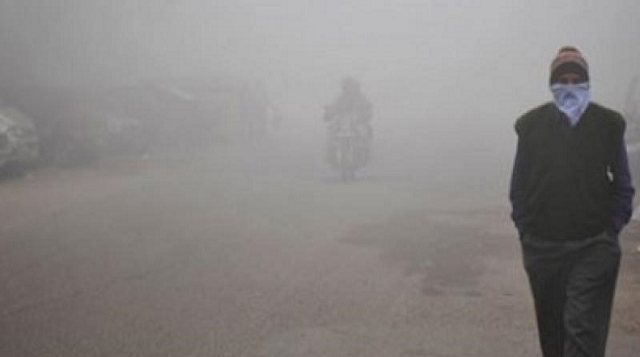Study links air pollution to risk of mouth cancer
Report has looked at data from 66 Taiwanese air quality monitoring stations

Air pollution linked to mouth cancer in new Taiwanese study. PHOTO: AFP
A report in the Journal of Investigative Medicine looked at data from 66 Taiwanese air quality monitoring stations in 2009 and researchers further examined health records of 480,000 middle-aged men in the period between 2012-13. The report discovered 11,617 cases of mouth cancer in the participants.
EPA conducts survey to curb air pollution
The research team studied pollution particulates called PM2.5s. Researchers ruled out factors such as age, smoking habits, and betel quid intake.
The study found that the participants exposed to high concentrations of particulates--40.37 μg/m3 or higher--had 43 per cent greater chances of getting mouth cancer.
WHO has warned that annual PM2.5s levels should not be higher than 10 μg/m3. However, multiple cities around the globe exceed this limit including Kabul, Beijing and New Delhi. New Delhi has the highest concentration with annual levels of 122 μg/m3.
An environmental health expert at King's College, Professor Frank Kelly has recommended replicating the study in other countries.
Karachi, Lahore among cities with worst air pollution
“Air pollution has previously been linked with several types of cancer, including breast, liver, lung and pancreatic cancer," he said, adding that the new link was not surprising.
He suggested, however, that the phenomenon may be Taiwan-specific due to betel nut consumption, smoking habits, and air pollution levels.
Previous evidence has indicated that no level of air pollution is 'safe'. Scientific research has previously linked high air pollution to myriad health issues, including dementia, asthma, and changes in heart structures.
This article originally appeared in The Guardian.



















COMMENTS
Comments are moderated and generally will be posted if they are on-topic and not abusive.
For more information, please see our Comments FAQ